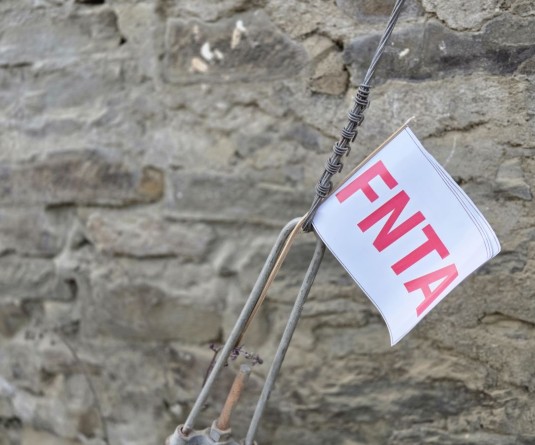
Yitachu Minister
School Education & SCERT Nagaland Kohima.
I take this humble opportunity to write for public consumption on the subject Article 371 A in relation to Article 243-T of Part IX A with the implementation of 33% Women Reservation. Commendable views and opinions from various walks of life have been expressed. However the reason as to why Government took such a decision to go for the ULBs election was poorly highlighted in the public domain.
The Article 371 A is the only Special Provision for the Nagas INSERT IGNOREed in the Constitution of India by the Constitution 13th Amendment Act.1962.The Special Provision is sacred, supreme and dear to the Naga people, the provision which does not required to be reproduce here.
Now, the question arises who should implement the Special Provision and powers contend in the Article 371 A of the Indian Constitution in terms of legislation, executive, interpretation, governance, regulating and enforcement. The answer is founded in the Constitution itself. Only the Constitutionally constituted Authority alone can legislate, execute, interpret, govern, regulate and enforce the provision for the Naga people. Under the Constitution of India, the following constitutional established authority alone can implement the provision of Article 371 A.
Firstly, the Union, that is the Central Government, i.e the President, Council of Ministers, both Houses of Parliament and the Supreme Court with all its machinery under their control, details of which forms Part V of the Constitution of India.
Secondly, the State i.e the State Government of Nagaland i.e the Governor Nagaland, Legislative Assembly, the Council of Ministers and High Court with all its machinery details of which forms Part VI of the Constitution of India. Thirdly, the Panchayats which forms Part IX of the Constitution of India from Article 243 to 243-0 and by virtue of Article 243-‘M’ (2) (a); the State of Nagaland does not apply. However, the Government of Nagaland by enactment of the Nagaland Village Area and Regional Council Act 1972- the Village level i.e, the village councils are the constitutionally established Authority at the local self Government level to implement and enforce the power contend in Article 371 A.
Fourthly, the Municipalities which forms Part IX A of the Constitution of India from Article 243-P to Article 243-ZG. The state of Nagaland by the Municipal and Town Council Act 2001 with its amendment 2016 incorporating 33% Women Reservation is a constitutionally established Authority in the urban areas applicable to those towns which fulfills the criteria to be recognized as Municipal Council and Town Council.
Fifthly, the Co-operative Societies which forms Part IX B of the Constitution of India from Article 243-ZH to Article 243-ZT. The Nagaland Co-operative societies Act (Amendment 2005). The various Co-operative societies have the power to resolve the disputes as per the provision of Article 371 A of the Constitution of India.
Therefore, to implement the power and functions contend in the Special Provision for the Nagas under Article 371 A of the Constitution, the constitutionally empowered established Authority for the time being is only the Union of India, the state of Nagaland, the Village Councils of Nagaland, the Municipal and Town Councils of Nagaland, the Co-operative Societies of Nagaland.
Now the question as to why the Government of Nagaland of the day decided to go ahead with the Municipal and Town Council election on 1st February 2017.
The Municipal and Town Council Act 2001 was enacted and passed. The Act was implemented by conducting election in 2004 in the entire state of Nagaland except for Mokokchung and the election were also conducted without 33% Women Reservation since the provision was not INSERT IGNOREed in the Act.
The Honorable Guwahati High Court in 2005 passed a judgement directing the State Government to implement 33% Women Reservation over a petition filed by a women candidate in Dimapur (East) Town Council. The State Government did not go for appeal and instead took up the act for Amendment in 2006 INSERT IGNOREing 33% Women Reservation in the Municipal and Town Council Act 2001.
Election was announced in 2009 with 33% Women Reservation, however the Naga Hoho and the tribal organizations objected and in the process not a single nomination was filed and the Government has postponed the election which was followed by various consultation with the Tribal Hohos, NGOs, Civil societies including various women organization. The state government have to find a way out to constitute the ULBs and nominating members was taken up, however it could not receive acceptance for proper funding from the Ministry and even the pressure to enforce High Court judgement has become a matter of great concerned. The state government in its effort to balance and to bring an amicable resolution with the Tribal Hohos and women group on the one hand and the High Court on the other resulted to passing a Resolution in the Assembly in 2012 whereby making Article 243-T of Part IX A not applicable to the state of Nagaland on the ground that it infringes Article 371 A of the Constitution of India.
Consequence upon the Resolution in the Assembly, the women group challenge the Assembly Resolution in the Supreme Court through a Special Leave petition which was admitted and pending for final disposal. In the mean time, the Government Advocate in the Supreme Court are being honest enough to suggest that the arguments that Women Reservation of Article 243-T of Part IX A INSERT IGNOREed by Constitution 73rd & 74th Amendment 1992 infringes Article 371 A does not formed a winnable argument and suggested that the best way out would be negotiate with the women group and bring about amicable resolution to withdraw the case. When the Advocate fighting for the Government are not confident and feeling uncomfortable to argue, there is nothing much the state government could take the alternative approach to the issue. The Government on its part made several attempts with the women group as well as the Tribal bodies and when all these attempts failed to bring about amicable resolution to the issue, the Government is left with very limited options.
Option 1: To wait for the Supreme Court judgement. This would mean the government could only resort to delay tactics and finally end up losing the case and in the process given away overwhelming power to the Court to interpret the limit of power of Article 371 A of the Constitution of India for wrong reasons and thereby eroding the Special Provision for the Nagas. This situation would also mean giving power to the court to enact and implement the provision in totality.
Option II: To pre-empt Court decision by going ahead with the ULB election. By opting this Option-II the Special Leave petition in the Supreme Court will become infractious and it takes away the power of the Court to make any reference, observation, remarks pertaining to Article 371 A and thereby protecting and preserving the sanctity of Article 371 A.
The Government had several round of discussion and opted for the Option- II to pre-empt the Court decision by bringing Amendment in the Municipal and Town Council Act 2001 by incorporating 33% Women Reservation through the Amendment of 2016 when all options to bring about amicable resolution failed. The Election Commission was accordingly asked to proceed with the conduct of ULB election. The Election Commission accordingly proceeded with the Notification for the conduct of the ULB election. This decision on the part of the Government is aimed at protecting and preserving the sanctity of Article 371 A and thereby avoiding any interpretation of Article 371 A by the Court for wrong reasons.
As far as the Municipal and Town Council Act 2001 is concerned is already an existing Act and implemented. That means only 33% reservation for women is the issue. In this also going by the opinions and views expressed by the various organization, the issue is not very clear. Whether we are opposing women participation or against women presence in the decision making body. By suggesting that women should be given nomination even to the extent of voting right that means the women participation is not opposed. The women reservation is a National policy brought about by 73rd & 74th Constitutional Amendment Act 1992 to empower women belonging to Scheduled Caste and Scheduled Tribe in Municipalities for a period of 10 years and further extended for a period of 10 years in 2012 and will end by 2022 unless further extended. Empowering women if the Nagas says is against religious, social customary practices, civil and criminal justice then what about MGNREGS Act which provides 100 days Right to Employment to the citizens of the country. Right to employment envisage in this MGNREGS Act is not our culture, tradition, customary, social or religious practices of the Nagas as provided by Article 371 A. There are countless of such innovative policies and programme which does not infringe Article 371 A but only empowers its citizens growth economically, so is the women empowerment, right to girls education, even establishing the Department of Women Development does not in any way infringes Article 371 A rather such an innovative and positive steps will only strengthen Article 371 A. Even the State Assembly is not the customary and social institution of the Nagas but by the Constitution 13rd Amendment Act 1962 the state of Nagaland with Special Provision under Article 371 A was created to promote, protect and preserve the religious or social practices, customary laws and procedures, administration of civil and criminal justice involving Naga Customary law, ownership and transfer of land and its resources, similarly the local self government are established in the villages known as Village Councils and in the urban municipalities by our own State Municipal and Town Council Act 2001 are known as Municipal Councils and Town Councils.
In conclusion, Part VI of the Constitution of India with special reference to state of Nagaland; Part IX of the Constitution of India the Panchayats, for the states of Nagaland, Village Councils; Part IX A of the Constitution of India the Municipalities, for the state of Nagaland the Municipal Councils and Town Councils; Part IX B the Co-operative societies of the Constitution of India, for the state of Nagaland, the Nagaland Co-operative societies Act (Amendment 2005) and since the Nagas fall under the category of Scheduled Tribe Part X of the Constitution of India all these Constitutional Provisions are enabling provisions to strengthen Article 371 A when it comes to the Nagas and the state of Nagaland. Just going against the state government decision is not enough but as stake holders it is required to analyse and examine and the circumstances leading to the state government to make such a decision. The state government have taken several level of discussion with various stake holders and also within the government established set-ups to arrive at this decision approving the Election Commission to conduct election to the ULBs in the state of Nagaland.
The process for conduct of ULB election is in progress and the completion of the process is now beyond the power of the state government to stop, postpone or defer except to allow the completion of the process by the Election Commission, by virtue of Article 243-ZG even the courts are barred from interfering in the electoral matters except by an election petition to the authority constituted as provided by law.





